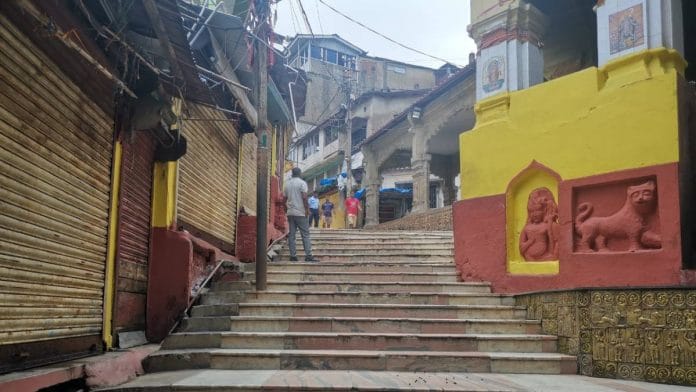Guwahati: Temples across the country cautiously reopened more than a week ago after the central government allowed it under its ‘Unlockdown 1.0’ plan, but in Assam’s capital, the popular Kamakhya temple has remained shuttered.
The Kamakhya temple is one of 51 Shakti Peethas, important shrines in the Hindu tradition of Shaktism that are spread across India, Bangladesh, Nepal, Pakistan, China and Sri Lanka.
The temple, which shut even before the nationwide lockdown was imposed, has even called off its yearly spectacle, the Ambubachi festival, which is usually a huge draw for devotees and generates significant revenue for the temple and the state.
The festival is celebrated around mid-June to mark the annual menstruation cycle of the temple’s presiding deity, Goddess Kamakhya. Nearly 30 lakh devotees arrive from across the country, and even abroad.
The decision to not reopen, says head priest Mohit Chandra Sarma, is unprecedented as the temple had never been closed off to devotees before, even during the turbulent Assam Agitation in the early 1980s.
However, with the Ambubachi festival on the cards, the temple committee decided it was best since ensuring social distancing would have been a major task. Residents say pandemic and the shut temple put together have wreaked havoc on their economy.
Compared to the rest of India, Assam has registered a mere total of 4,777 cases, of which 2,114 are active, as of Friday. In hotspot Maharashtra, active cases itself number at nearly 54,000, while in New Delhi, there are more than 26,000 active cases. India’s total reported cases was at 3.8 lakh, according to the health ministry.
Maharashtra, New Delhi and Punjab saw their cases spike after transmissions at religious congregations resulted in the infection spreading. The Tablighi Jamaat congregation held in March in New Delhi became the largest vector of the disease in South Asia at the time.
Also read: Too many to test & too few to lead the Covid fight — Assam struggles after early success
An uneventful Ambubachi Mela
The streets around the Kamakhya temple would have been normally teeming with devotees by this time of the year for the mela, but Covid-19 pandemic has left the area quiet and desolate.
The temple authorities have decided to keep the temple closed till 30 June for now.
“We closed down the temples for devotees because there’s usually a daily gathering of 20,000 people who come to offer prayers every day and it wouldn’t have been possible to maintain (social) distance,” Sarma told ThePrint as he sat by the closed entrance doors.
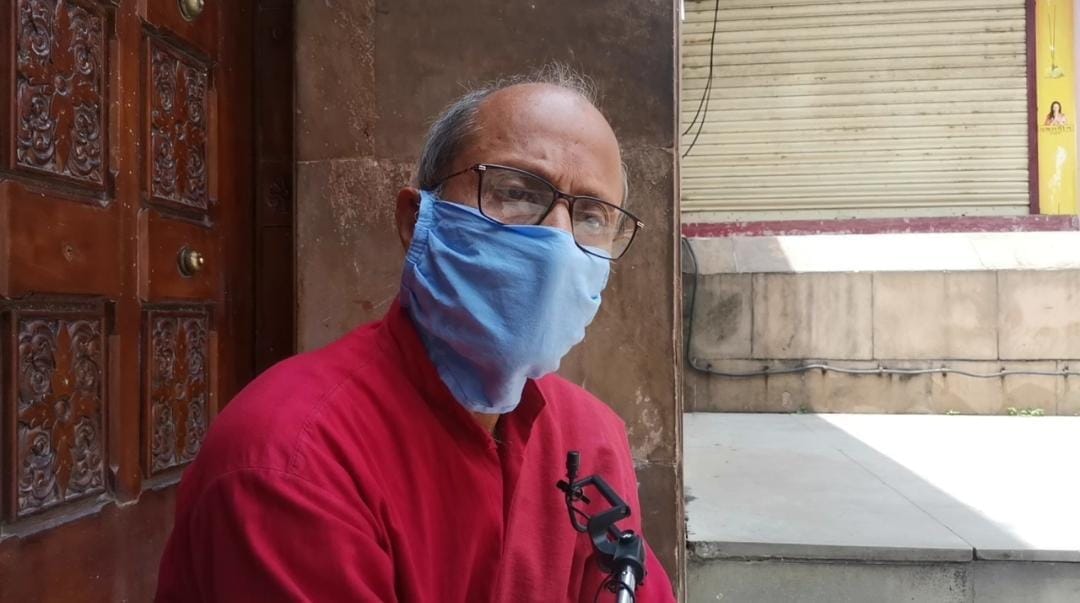
Though devotees have been absent from the temple, the priests have been carrying about as usual, and will mark the Ambubachi festival as well.
“The traditions of Ambubachi will be followed, just that no one will be allowed to enter the temple from below the hill as well. The only reason for that is the Covid-19 virus,” said the head priest, who is also known as the bor-doloi.
The mela is considered the largest Hindu religious congregation of eastern India, is held every year from 22-26 June.
Also read: Unexplained tremors every 15 mins force over 1,000 near Assam’s Baghjan to leave their homes
‘Not even Assam Agitation shut the temple’
Kamakhya temple closed its gates to visitors four days before the lockdown was announced on 24 March. Many of the local residents ThePrint spoke to said this was unprecedented. Even during the Assam Agitation, which saw violence and unrest spread through the state between 1979 and 1985, the temple had remained open to visitors.
“I’ve never seen a situation like this before,” said Sarma.
“There was a revolt in Assam in 1980 … and when the (Ambubachi) festival happened, there were only about 50 to 60 people. But even then, our temple committee didn’t make this kind of decision,” he said.
Then, on 21 April, the temple’s management committee, Maa Kamakhya Devalaya, issued a notification in which it announced the cancellation of the Ambubachi festival.
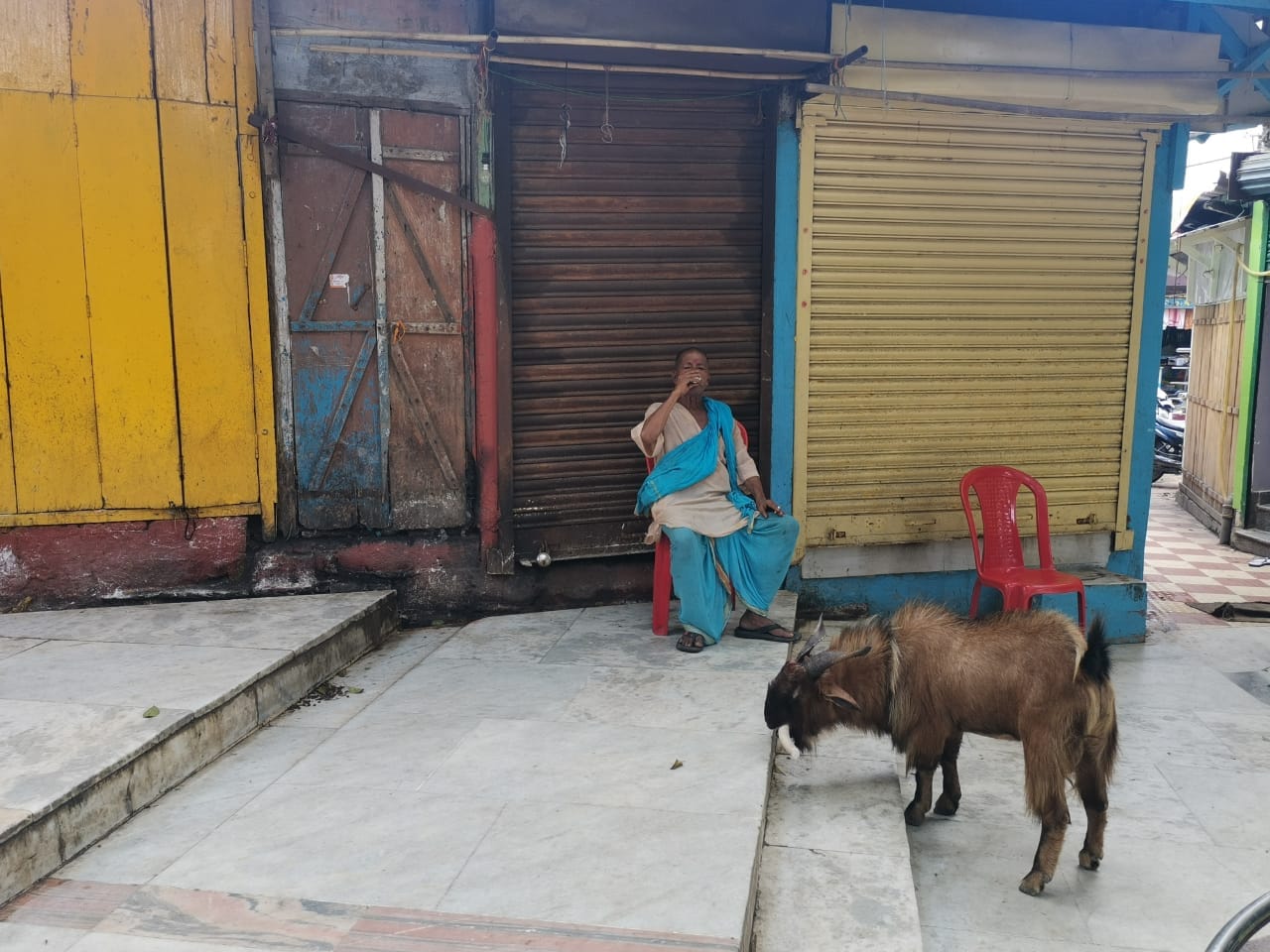
Now, despite the Centre’s Unlock-1 guidelines, the temple authorities have decided to keep it shut. Meanwhile, in states like Kerala and Karnataka, the reopening of religious places, including the famous Sabarimala temple, caused quite a political stir with opposition parties coming down heavily on state governments.
According to the government guidelines, places of worship must ensure there are no more than 20 people at a time and social distancing is followed at all times.
Also read: Masked pilgrims, barbers in PPE and shorter queues as Tirupati temple reopens after 80 days
Business as usual, but without income
For priests inside the temple, their routine has remained largely unchanged. They wake up before sunrise, offer prayers to the goddess and perform the ritualistic sacrifice — usually a goat. A second aarti is performed in the evening before the temple is closed for the day.
“There’s nothing much happening in the temple. We just do the daily prayers,” said Dhiraj Sarma, another priest. Talking about social distancing measures among those inside, he said the priests use protective gear and maintain distance. “Yes, we do wear masks and practise social distancing.”
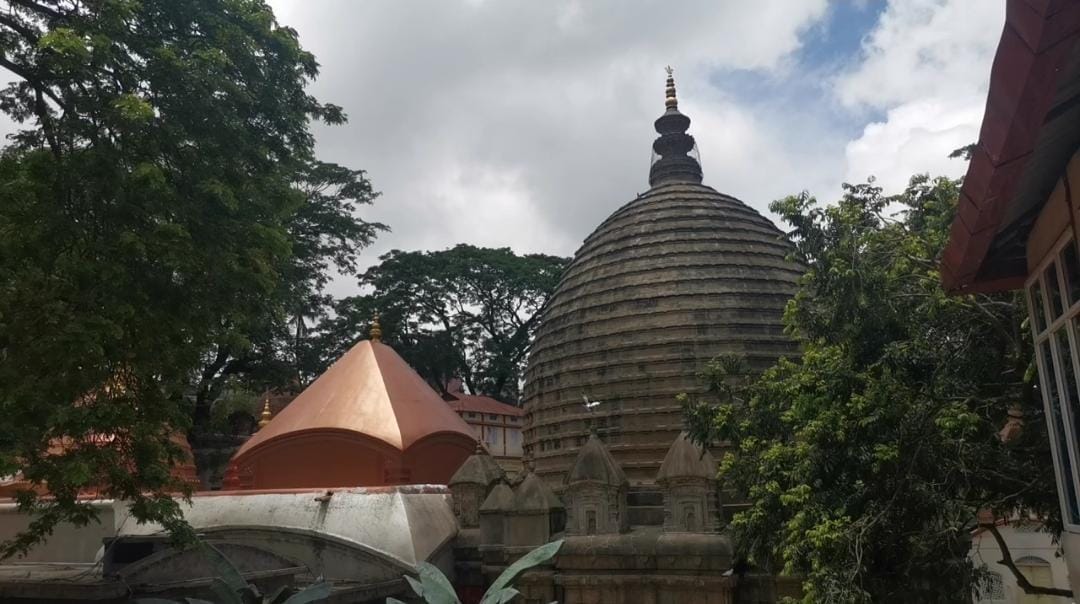
Head priest Sarma said no devotees and festival meant lesser funds to run the temple with.
“We have been managing with our savings so far. If this continues for a few months, we’ll run into a lot of trouble. But some of our employees have left since the work has decreased now. We’re paying them less. And we’ve hiked the salaries of those who’ve stayed back. We’re managing somehow,” he said.
According to him, the Maa Kamakhya Devalaya currently employs nearly 250 people, and includes doctors at a clinic run by the temple close by.
Also read: First flush gone in lockdown, Bengal and Assam tea industries face Rs 2,100 cr loss
City at a loss too
For the town nestled in the Nilachal hills, the temple being shut impacts the revenue they would have generated from religious tourism. Many of the local businesses cater to visiting pilgrims.
“Be it the shopkeepers or the locals, everyone is facing the problem. Almost 80 per cent of the people here depend on the temple. So if the temple is closed, then the economic purpose for these people is also closed,” Manav Sarma, a resident, said.
The narrow streets around the temple are lined with shops that usually sell flowers and other items used in daily prayers. A few metres below the temple is a crowded scene of lodges, hotels and restaurants. All their shutters remain closed along with the temple’s.
Prior to the lockdown, 55-year-old Bipla Verma, a flower seller, managed to earn a daily profit of Rs 200. But now, she barely make ends meet, she told ThePrint. “I am not able to sell flowers … I survive on meagre ends. I’ve suffered a tremendous loss. People who have jobs have helped me with potatoes, rice and dal,” she said.
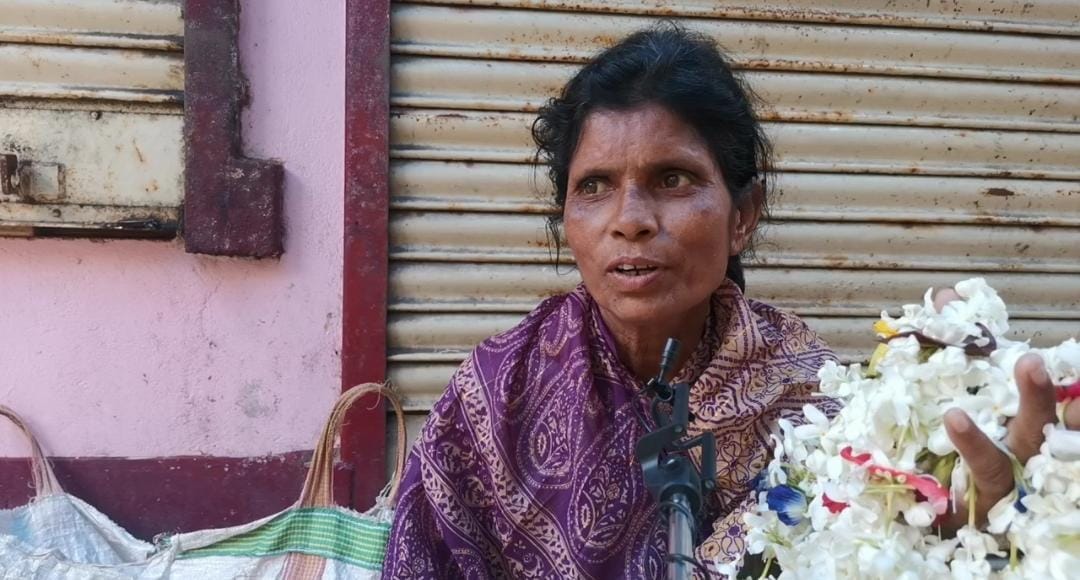
In a telephonic interview to ThePrint, Biswajit Pegu, District Collector of Kamrup Metro, where Guwahati is located, said the hotel and transport industries stand to lose the most.
“A lot of people from various parts of the country come during the Ambubachi Mela and many of them stay in the hotels. So the hotel industry is being affected … Similarly when a person comes from outside, they avail the cabs, buses … so the the transport department will get affected,” he said.
“Overall, it’s going to affect the economy in a big big way, but we can’t help it … we have to go with the times,” he said.
Last year, the Assam government allocated Rs 2.5 crore for the Ambubachi festival. Of this amount, Rs 1.36 crore was spent by the state’s tourism department to publicise the event and spruce up the temple surroundings.
Also read: Ahmedabad’s high fatality rate, ‘ruthless quarantine’ in Assam & AP’s mobile testing centres



